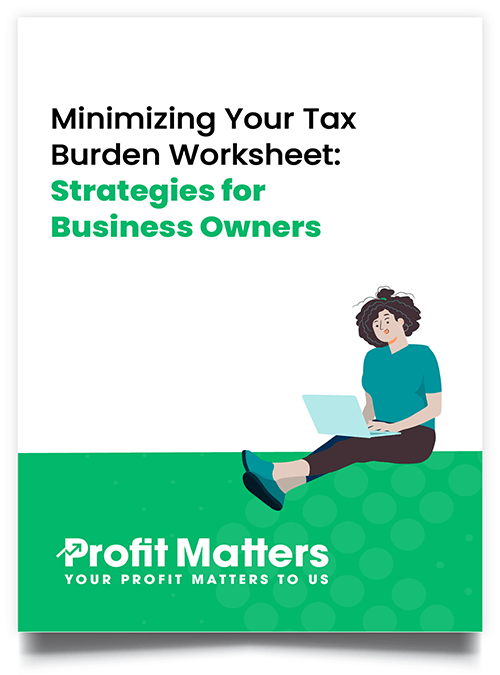Personal finances are a tricky subject—some of us are excellent at keeping track of our money, others… not as much. If you’re on the ‘not as much’ side, first of all – you’re not alone. Second, the people that are good at it might appear to you as if they’re mystical creatures blessed with the innate instinct to manage their money well. More likely, though, they had to work hard at one point to get into a routine and still work to maintain that. Some basic steps can help you get your money matters organized and give you an idea of where you’re starting from or what your next steps should be.
The basics
Creating a simple financial calendar
You don’t have to make it complicated. Google created a personal budgeting spreadsheetthat is a great way to start tracking your incoming and outgoing expenses so you can see where you’re at.
Track your debt
Chances are, you have a few different interest rates. It can be tempting to bury your head in the sand and not want to know exactly how much extra you’re paying when you purchase on credit, but knowing will help you pay the high-interest areas first and save you money in the long run. It’s an easy step that you can take without having to really make any changes to your financial routine.
Tracking your net worth
Knowing net worth isn’t just for the Forbes Billionaires List – it’s for all of us! Your net worth is what your assets are (anything you own that can be converted into cash), minus your liabilities (anything you owe like student loans, credit card debt, mortgages, etc.). If this number is positive, it means you own more than you owe. If it’s negative, it means you owe more than you own. Ideally, as you age, this number should trend upwards.

All about budgeting
Creating a personal budget – This doesn’t have to be complicated. If you’re thinking that you don’t need a budget because you’re living paycheck to paycheck, so you don’t have money to budget – give it a try. Budgeting isn’t so you can allocate extra money, but to provide you with a line of sight into where your current income goes. There will probably be some surprises that will motivate you to make some adjustments in your spending habits.
If you live on your phone, try using a budgeting app like Mint or YNAB (You Need A Budget).
50/20/30 Rule – Give this method of allocating your paychecks a try. It’s reasonable and allows for lifestyle spending without shaming you into feeling like you should be saving every dollar you have to spare.
- 50% Needs – things like rent, mortgage payments, car payments, groceries, gas, cell phone bills, and minimum payments on loans and credit cards.
- 30% Wants – this is your lifestyle spending money.
- 20% Savings – save into a separate emergency account until you have three months of savings in case you lose your job or, for any reason, can’t work. After that, start putting your savings into mutual funds, IRA contributions, and investing in the stock market.
Maximizing your credit score
Your credit score is the best way for potential lenders to see if you will pay them back reliably. Your score can range from 300-850 and is a weighted balance of these things: payment history, amounts owed, length of credit history, new credit, and credit mix.
Each of these elements is weighted differently, with the majority split between payment history and amounts owed. If you have some negative influences that are causing you to have a lower credit score – all is not lost. Even if you take no different steps except to make sure you pay your bills on time and gradually decrease the amounts owed, your score will slowly come up. However, there are some things that you can do to influence your score in a good way more actively. 700 and above is considered an excellent credit score and will mean that you’ll likely be accepted on most credit applications you make.
Here are a few tips on getting your score above 700:
- Pay your credit cards off fully each month. Even if this means consolidating balances between cards so that you can do this on one card only, being seen to pay off a credit card fully is very positive.
- Ask someone you trust to add you as an authorized user on their credit card. This function was originally to let younger people access credit cards they normally wouldn’t. Still, it has the huge benefit of assigning the primary cardholder’s credit score to the authorized user. Be careful, though, as this goes both ways – if you’re an authorized user and the primary cardholder’s credit score dips below your own, you’ll be negatively impacted.
- Try not to get too close to your borrowing limit.
- There are two types of inquiries into your credit – hard inquiries and soft inquiries. You might have heard that an inquiry into your credit will harm your credit score. This is only true of hard inquiries. Before you approve an inquiry into your credit, ask if it’s a hard inquiry.
Insurance – pay more so you don’t pay WAY more later
- Homeowners or renters insurance – For homeowners, this type of insurance is mandatory. For renters, it’s an excellent option to safeguard yourself from being in a really tough spot if something happens to your rental home. Typically, both of these types of insurance cover damage to the exterior of your home and loss or damage to the contents inside. The levels of coverage range from reimbursement of the exact cash value you paid for them minus depreciation to what you paid, not including depreciation, to what you paid plus an inflation buffer.
There are exemptions for what causes of damage are covered, but overall, these policies protect you from losing your home or possessions in extreme cases like a fire or hurricane.
- Health insurance – It’s costly but nowhere near as costly as paying for treatment for even a small injury or medical procedure.
A good option if you are under 26 is to ask your parents to keep you on their plan and reimburse them for the extra cost. It will be less than you would pay on your own and will give you some time to save for your own plan.
If you don’t have the option of getting insurance through an employer, be sure to get quotes from different insurance agencies to compare and check out plans offered by the Health Insurance Marketplace of the Affordable Care Act.
- Car insurance – while car insurance is mandatory in most states, the level of coverage required can vary. It’s important that you know exactly what the requirements are of you and other drivers in your area, so you know the level of coverage you need.
No matter how good of a driver you are, there are thousands of other people on the road with you, and you will never know what level of attention, tiredness, or overall competency they are at, and you need to protect yourself.

Ways to increase your earning potential
- Side hustling – Two main things play into the increasing frequency of the side hustle. First, our ability to work worldwide and connect with niche audiences has skyrocketed in the past few years. Maybe you’ve always been incredible at making portraits of pet turtles out of old wine corks, but you had no way to sell more than two. Now you can! Second, life is getting disproportionately more and more expensive in comparison to the past, and we need methods of making more money in addition to our 9-5 jobs. Necessity plus accessibility equals the side hustle boom.
The neat part of this is that you can literally make it whatever you want and put as much time into it as you want. Maybe you choose something that you see as a genuine pain point that you have a solution for, or perhaps you decide that your side hustle should be an outlet to sell things you already love to make. Your options are endless.
Platforms like Etsy give you a place to easily sell your work without having to make a web page. Upwork is a great way to find freelancers on your budget to create things like logos and websites if you need those resources.
- Negotiate your salary or rates – this is a big one that often is underused. Asking for more money for the same job you already do isn’t unreasonable – as you gain more experience, your expertise is worth more and you have the power of negotiation, use it!
Many of us fall into the trap of believing that we are stuck in our corporate employers’ annual salary increase process. There is almost always wiggle room to be found here if you know how to approach it. Give these tactics a try – it doesn’t cost you anything to ask, and worst case, nothing will change. Best case, more money for you!
Freelancers are also frequently troubled by not knowing how to approach increases in rates. Talking with clients about increasing what you originally agreed with them can feel like asking for trouble, but it won’t be if you approach it correctly.
- Level up on your value – Something that you can always do to justify asking for more money is to increase your value through further education. Depending on your field, this can mean online degrees, master’s degrees, accredited certifications, etc.
Book recommendations
Money matters is an area where we can be vulnerable to taking unscrupulous advice from other people. That might not mean they are acting maliciously, but they could be misinformed themselves and pass along the bad information they received. The best way to make sure you’re making sound financial decisions is to be informed from trusted sources and start educating your kids when they’re young to set them up for success. Here are a few book recommendations to check out:
- “Raising Your Money-Savvy Family for Next Generation Financial Independence” by Doug Nordman and Carol Pittner
- “Broke Millennial Talks Money” by Erin Lowry
- “I Will Teach You To Be Rich,” by Ramit Sethi
If you’re more of a podcast fan, have a listen to these:
- NerdWallet’s Smart Money Podcast
- Millennial Money Podcast
- More Money Podcast
The bottom line is that no matter the state of your financial life, you can do something to make it better. That something might be a small start, and that’s perfect. Seeing numbers in black and white right in front of you might be a bit daunting if they’re less than optimal, but the feeling of taking control will be better. Open that Google Sheets budget planner and fill it in for last month. If you already have savings, do some investigating into where else you can put your money aside from a savings account. Small steps will see significant results!
Guest post provided by Isabella Caprario


